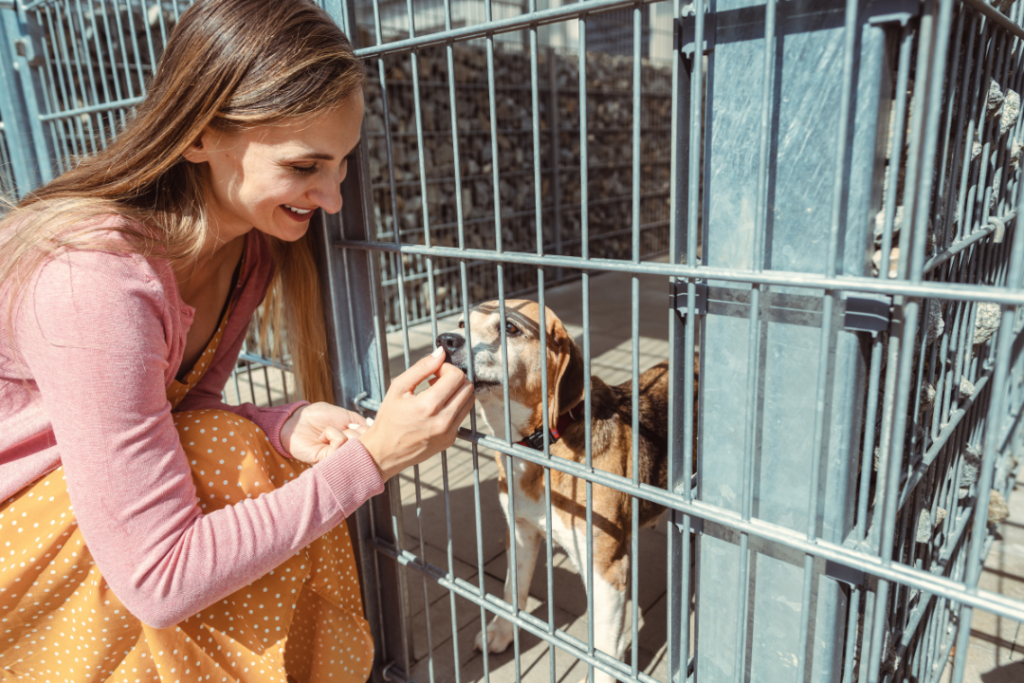Hey there, future dog parents! 🐾 Are you captivated by the idea of canine cuddles and wagging tails in the Golden State? If so, you’ve landed in the ultimate playground of knowledge! This exhaustive guide aims to equip you with all the necessities, legalities, and pet-tiquettes of dog adoption in California. Trust me, it’s more than just puppy love; it’s a long-term commitment. And if you don’t know where to start, you’re definitely in the right place.

Listen up, young pups and wise wolves! California requires you to be at least 18 years old to sign adoption papers. For our golden-agers, some shelters offer discounts or even waive the fees altogether for adopters aged 60 and above. Why? Because the wisdom of age often brings the patience and understanding a pet needs.
Being a California resident might make the adoption process quicker, but don’t worry if your ID doesn’t scream Golden State. Out-of-staters can adopt too, but be prepared for additional paperwork or wait times. This often includes proof of travel plans and, in some cases, quarantine requirements for the pooch.
Have a four-legged family already? Fantastic! Shelters generally love placing a dog in a home that’s already pet-friendly. However, many facilities require a “meet and greet” to ensure your existing pets and your potential new family member will get along. Plus, proof of up-to-date vaccinations for your current pets is often a must.
Before you rush to the shelter, understand that love isn’t always free. The adoption fees in California can range from $50 for older dogs to $300 for puppies. This fee usually includes initial vet check-ups, vaccinations, microchipping, and often spaying or neutering.
Owning a dog is an investment in a living, breathing cuddle machine. And like all investments, there are ongoing costs. This includes not just the basics like food and annual vet checks, but also potential emergencies or illnesses. According to industry estimates, you could be looking at $1,000 to $3,000 per year, depending on the size, breed, and health of the dog. Budget accordingly!
You’ll need two forms of ID: a government-issued photo ID and another for proof of your current address, like a recent utility bill or lease agreement. No, your Facebook profile won’t count!
Ready for some adulting? You’ll have to fill out an adoption application form, which usually includes questions about your living situation, lifestyle, and experience with pets. Background checks might also be conducted to ensure that you don’t have a history of animal abuse.
Within a month of adopting your dog, you’ll need to head to your local animal control agency to get them licensed. This license must be renewed annually, and fees can vary by county and the dog’s age, size, and whether they’re spayed or neutered.
Knowledge is power, and some shelters want to empower you to be the best pet parent possible. That’s where pre-adoption counseling comes in. These are either short courses or one-on-one sessions where you can learn all about dog behavior, training, health, and safety.
The curriculum often includes basic dog care, diet and nutrition, exercise needs, and behavioral tips. It’s like the ‘Parenting 101’ class you never knew you needed.
Shelters take the well-being of their animals seriously, and that’s why some opt for a home visit. This isn’t a spy mission; it’s to ensure that your home environment is safe and conducive for your new four-legged family member.
Make your place a doggy wonderland! Remove any hazards like sharp objects and electrical cords. A designated space for your dog, complete with a bed and toys, can help them adjust to their new home more quickly. Some shelters recommend installing a fenced yard or doggy door for easy access to outdoor potty breaks and playtime.
Once the adoption is finalized, schedule a comprehensive vet check-up within the first week. This is essential to gauge the overall health of your dog and to set a vaccination and deworming schedule.
Yes, the shelter may check on you post-adoption. It’s their way of ensuring that the transition is smooth and that your home remains a loving, safe place for the dog.
There you have it, the complete guide to adopting a furry friend in California. We hope this extensive guide helps you navigate the world of dog adoption with more confidence and less stress. Remember, every dog deserves a forever home, but not every home deserves a dog. Choose responsibly.